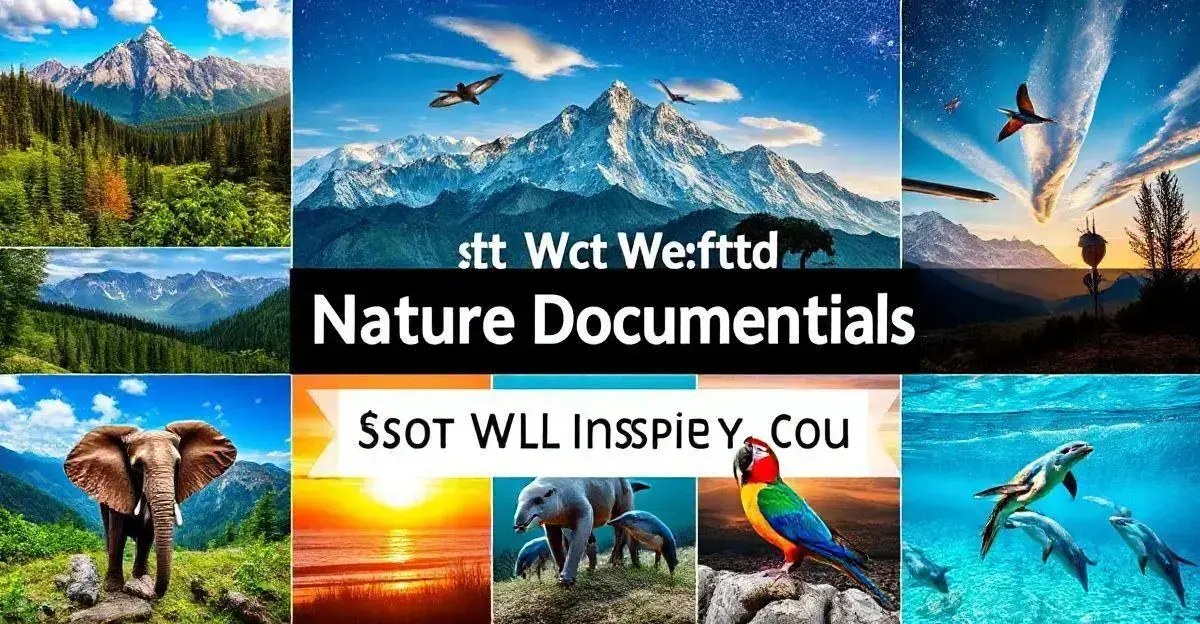Índice
Must-watch nature documentaries are captivating and educational, drawing viewers into the wild world of nature.
These films showcase the breathtaking beauty and harsh realities of the natural environment, often inspiring conservation efforts and appreciation for wildlife.
Top 10 Must-Watch Nature Documentaries
When it comes to must-watch nature documentaries, there are films that will leave you in awe of the natural world. Here are the top 10 nature documentaries you should not miss:
- Planet Earth II – A stunning sequel that explores the beauty of life on our planet.
- The Blue Planet – Dive into the mysteries of the oceans and their inhabitants.
- Our Planet – A visually breathtaking series highlighting the impact of climate change.
- Chasing Ice – A powerful documentary focused on climate change through the eyes of a photographer.
- Before the Flood – A documentary featuring Leonardo DiCaprio’s quest to combat climate change.
- March of the Penguins – Follow the incredible journey of emperor penguins in Antarctica.
- My Octopus Teacher – A heartwarming story that explores the relationship between a man and an octopus.
- David Attenborough: A Life on Our Planet – A personal witness statement by the famed broadcaster on global changes.
- The Ivory Game – An eye-opening investigation into the poaching of elephants and the ivory trade.
These documentaries not only entertain but also educate us about the urgent need for conservation. They offer deep insights into the behaviour of different species and the impact of human activities on our environment. Be sure to watch these must-see films to understand better the wonders and challenges our planet faces.
Why Nature Documentaries Matter
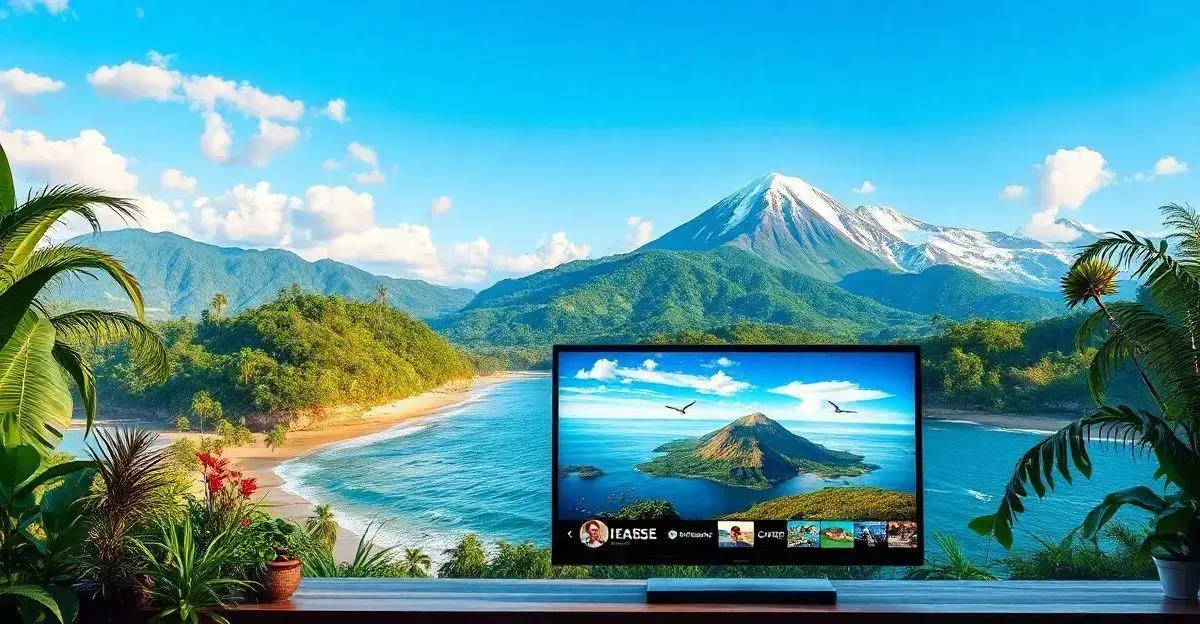
Nature documentaries matter for several reasons. Firstly, they educate viewers about our planet’s ecosystems and the species that inhabit them. These films highlight the intricate relationships between different organisms and their environments.
Secondly, nature documentaries foster a sense of appreciation for biodiversity and the natural beauty of the world. Watching stunning visuals can evoke emotions that inspire conservation efforts. Understanding the challenges faced by wildlife, such as habitat loss and climate change, can motivate people to take action.
Additionally, nature documentaries play a crucial role in raising awareness about critical environmental issues that threaten various species and habitats. They encourage discussions among viewers and often help build a community dedicated to wildlife protection.
Ultimately, these films remind us of our responsibility to preserve the natural world for future generations, making nature documentaries not just entertaining but also a vital educational tool.
How to Choose the Right Nature Documentary
Choosing the right nature documentary can be a rewarding journey. Start by identifying topics that captivate you, such as wildlife, ecosystems, or environmental issues, and consider what you hope to learn or feel while watching.
Check ratings and reviews to gauge the quality and depth of content. Documentaries narrated by renowned figures like David Attenborough often offer captivating storytelling that enhances the experience. Pay attention to production quality, as stunning visuals and soundtracks can make the viewing more impactful.
Decide whether you prefer a series or a standalone film. Series often provide a deeper exploration of specific subjects, while films offer concise storytelling. Sharing your favorite documentaries with friends can also deepen your appreciation and understanding of nature.
By considering these factors, you’ll find documentaries that resonate with your interests and leave a lasting impression.
Impact of Nature Documentaries on Conservation
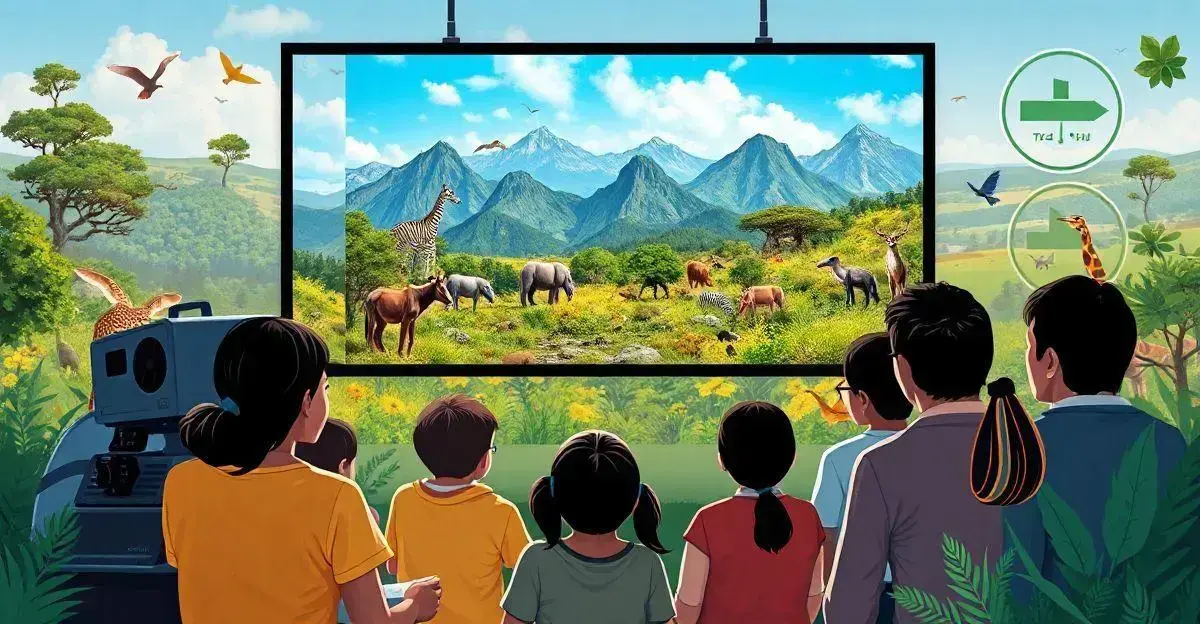
Nature documentaries have a profound impact on conservation by raising awareness about critical environmental issues like habitat destruction and climate change. Through breathtaking visuals of wildlife and natural landscapes, these films evoke emotional connections that inspire viewers to take action.
Educational content highlights endangered species and the challenges they face, offering audiences valuable insights. Documentaries also shine a spotlight on the efforts of conservationists and organizations working to protect ecosystems, motivating viewers to support initiatives through donations or volunteer work.
Additionally, these films often influence policymakers by vividly illustrating the urgency of environmental protection. The power of visual storytelling in nature documentaries is instrumental in fostering public understanding and rallying support for conservation efforts.
Behind the Scenes of Nature Filmmaking
The behind-the-scenes world of nature filmmaking requires meticulous planning and immense effort. Filmmakers often venture into remote locations, enduring challenging conditions to capture breathtaking visuals of wildlife and ecosystems.
The process begins with thorough research, understanding animal behavior, and learning about the ecosystem. Patience is essential, as wildlife does not follow a schedule. Timing is also critical, with filmmakers aiming to document key moments like breeding or feeding.
Advanced equipment such as drones and high-speed cameras are commonly used to achieve stunning shots. Collaborating with conservationists ensures ethical filming practices and the safety of wildlife, with strict attention to avoiding habitat disturbance. The editing process is equally vital, transforming hours of footage into a compelling and cohesive narrative.
Nature filmmaking goes beyond entertainment; it raises awareness about environmental issues. By showcasing the planet’s beauty and fragility, these films inspire viewers to support conservation and protect wildlife for future generations.
The Evolution of Nature Documentaries
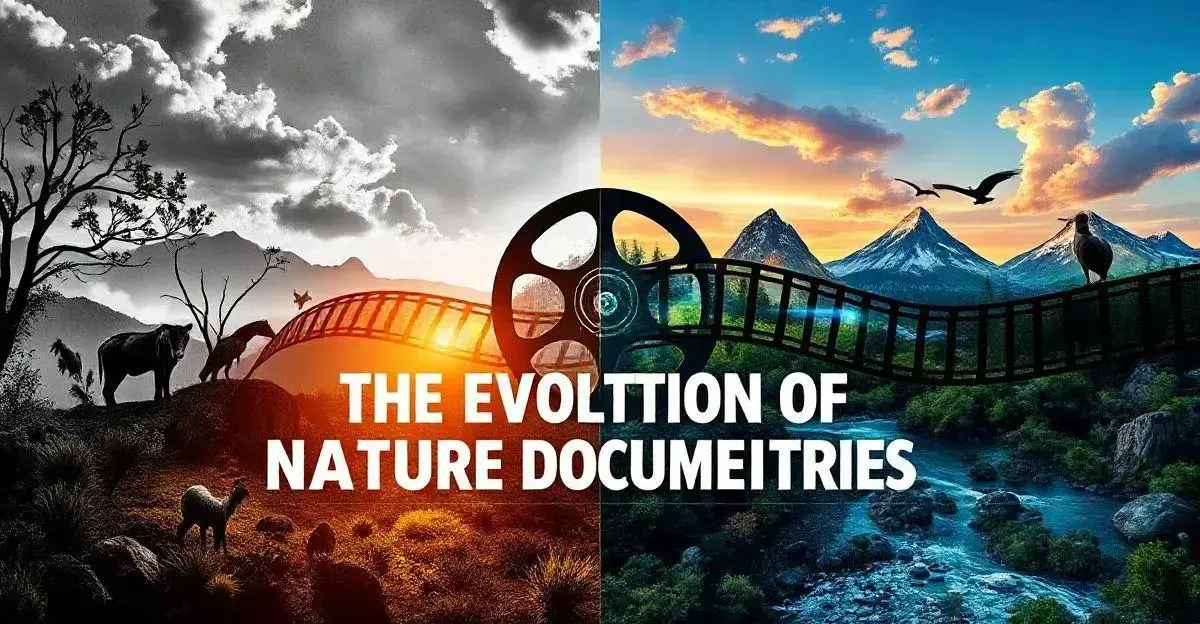
The evolution of nature documentaries has been fascinating to witness. It all began in the early days of filmmaking, where simple cameras captured footage of animals in their natural habitats. Documentaries like ‘The World at War’ paved the way for more focused wildlife films. However, when ‘The Blue Planet’ aired, it changed everything by using state-of-the-art technology.
Filmmakers were able to explore the ocean depths, revealing stunning visuals that amazed viewers worldwide. Over the years, advancements in filming techniques have contributed to greater storytelling. Cameras became smaller and more powerful, allowing for unprecedented access to wildlife.
This led to filmmakers spending months in the field, documenting the lives of various species. Today, nature documentaries often employ drones and 4K resolution to provide breathtaking views that immerse the audience.
Furthermore, the focus has shifted from just showcasing animals to discussing conservation issues. Modern nature documentaries engage audiences with urgent topics, like climate change and habitat destruction. Educational content is now a key element, helping viewers understand their role in wildlife protection.
Interviews with Renowned Nature Filmmakers
Interviews with renowned nature filmmakers provide unique insights into their experiences and challenges. These filmmakers often share stories about the dedication required to capture breathtaking footage of wildlife.
Many have spent months in remote locations, patiently waiting to film elusive animals in their natural habitats. They often highlight the importance of ethical filmmaking, ensuring that their presence does not disturb wildlife or disrupt ecosystems.
Filmmakers discuss their use of advanced technology, such as drones and high-resolution cameras, that enhance the quality of their films. They also talk about the inspiration behind their projects, often motivated by a passion for conservation and a desire to educate the public.
Many emphasize the impact that documentaries can have on raising awareness about environmental issues.
These interviews reveal that great storytelling is not just about stunning visuals; it also requires careful research and a deep understanding of the subjects being filmed. By sharing their journeys, these filmmakers inspire others to appreciate and protect the natural world.
Viewer’s Guide to Nature Documentaries
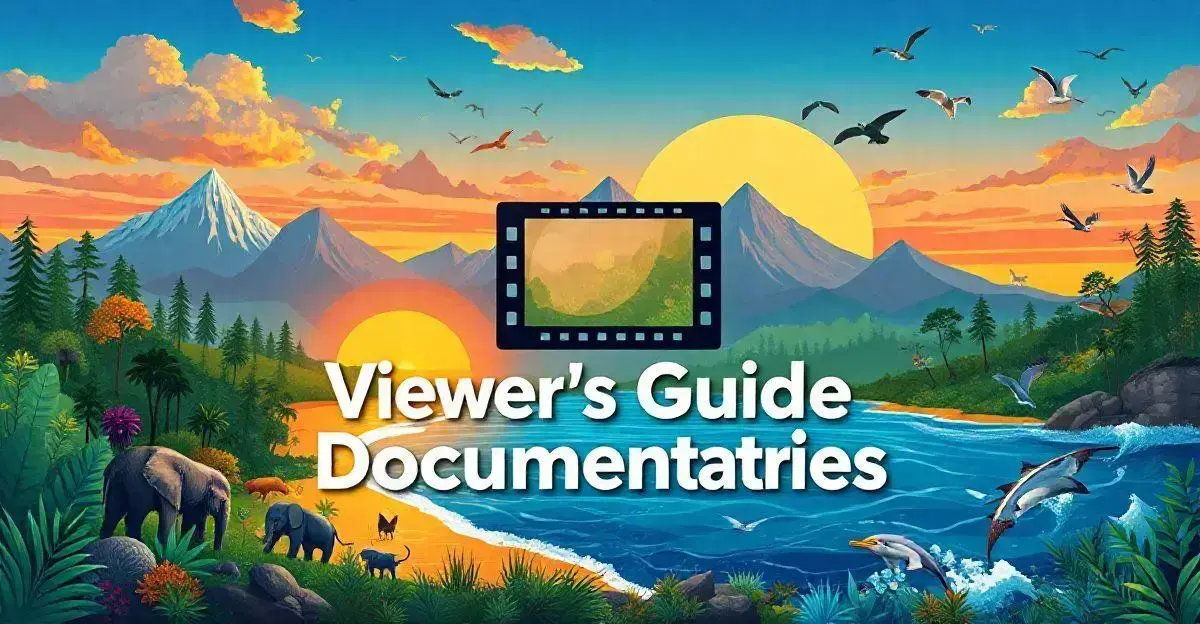
A viewer’s guide to nature documentaries can enhance your viewing experience. First, identify the topics that interest you, such as wildlife behaviour, conservation efforts, or stunning landscapes. This will help you choose documentaries that resonate with your passions.
Next, consider the format; there are series that delve deep into specific subjects and standalone films that provide a broad overview.
Pay attention to the ratings and reviews. Well-reviewed documentaries often reveal compelling stories with high production value. You should also look for films narrated by respected figures, as their narration can greatly enhance the impact of the documentary.
Certain streaming services curate collections of nature documentaries, making it easier to discover new titles. Finally, take notes while watching and discuss the documentaries with friends or family. Sharing insights and opinions can lead to a richer understanding of the messages conveyed through these films.
Future Trends in Nature Documentary Filmmaking
The future of nature documentaries promises captivating stories that entertain and educate.
Emerging trends in this field include:
Immersive technology: Use of virtual reality to place viewers in stunning landscapes and active animal behaviours.
Interactive elements: Options for viewers to choose storylines or species to explore in-depth within a documentary.
Diverse storytelling: Inclusion of indigenous voices and perspectives to provide a holistic view of ecosystems.
Scientist and filmmaker collaborations: Partnerships leading to groundbreaking discoveries that raise conservation awareness.
The Lasting Impact of Nature Documentaries on Conservation and Education
Nature documentaries play an essential role in educating viewers about our planet. They inspire appreciation for wildlife and the beauty of nature, while also highlighting the challenges faced by various ecosystems.
The impact of these films goes beyond entertainment; they motivate individuals to engage with conservation efforts and advocate for change.
Future trends indicate that nature documentaries will continue to evolve, embracing new technologies and storytelling methods.
As audiences, we have a unique opportunity to connect with nature through these powerful visual narratives. Let us support and celebrate the filmmakers who dedicate their lives to capturing the wonders of the natural world.
Check out our article on Movie Recommendations for great suggestions to make your next movie night unforgettable.
